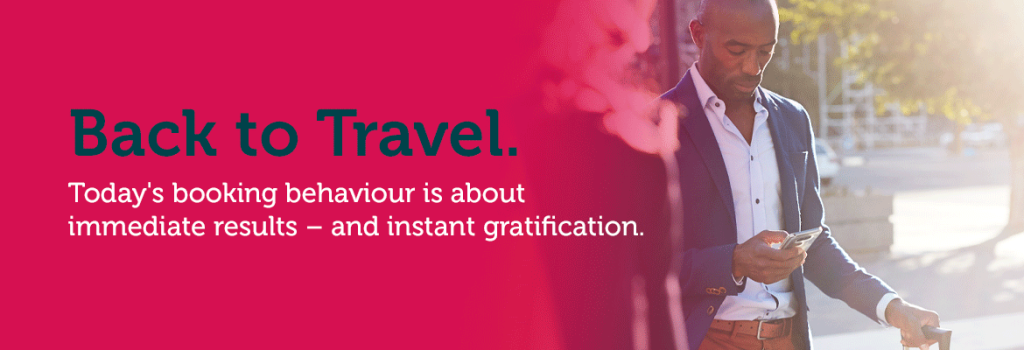
While corporate travel is starting to recover, the pandemic continues to impact the industry and industry players can see a change in booking behaviour. For example, the shift to last-minute bookings, necessitated by the uncertainty of the past two years, hasn't subsided as quickly as expected.
“The reluctance to book business travel in advance is fuelled by the uncertainty created by widespread reports of flight delays and cancellations due to airline and airport staffing shortages," says Bonnie Smith, General Manager of Corporate Traveller. “Companies continue to wait until the last minute to book flights as they monitor the situation. Unfortunately, it's an expensive way to travel.”
Another change? The pandemic was a tipping point that raised consumers' expectations for immediate results and instant gratification. Whether they're shopping online or booking a trip, they want a seamless experience, minimal hassle and an immediate result.
Convenience vs cost
But while SMEs were first out the starting blocks in terms of post-pandemic business travel, the rising cost of living threatens to put a damper on their plans. Identifying savings wherever possible is now key.
The hidden costs of booking a trip can add up. For example, online hotel rates may look very reasonable, but last-minute changes to the itinerary can be expensive or even impossible. Similarly, airfare comparison sites may not show all applicable fees until you checkout, which can be misleading and leave you with limited options.
According to Smith, SMEs seeking to cut down costs on their business travels can benefit from changing their booking behaviour. "With the increased demand for airline tickets and fewer airlines, last-minute booking prices will continue to rise. Airlines are under pressure to maximise profits. So if you want to save, plan your trip early."
TMCs can help their customers get lower prices by leveraging the collective buying power of all their clients. This way, even smaller customers who don't have a lot of money to spend can access ‘volume rates’ and special deals.
Instant loyalty
Loyalty programmes are adapting to the ‘instant gratification’ trend by offering more flexibility in reward redemption, according to Clarus Commerce, a loyalty programme provider. The ability to immediately redeem rewards such as free Wi-Fi, a room upgrade or a later checkout will be more attractive to many business travellers than rewards that traditionally require high point totals going forward.
Technology in the fast lane
Giving consumers what they want is not a new development – what is new is the required speed, according to a report published by Euromonitor. That’s where technology comes in.
Access to the technology offered by TMCs can enable companies to give their employees more freedom and flexibility when travelling and to satisfy the need for “instant gratification” with personalised bookings anytime, anywhere.
Globalisation and an increasing demand on the workforce for more flexibility are certainly going to encourage nowism in the years to come, according to Euromonitor. There is a danger in this need for instant gratification and desire for immediate results will have a far-reaching impact on any company’s bottom line, especially when considering business travel.
Smith advises companies to rather be purpose-led and think about travel with a clear strategy in mind. “A robust travel strategy combined with the latest technology can generate the immediate results the traveller and the travel booker are looking for today. Instant booking capabilities and instant reporting backed by the expertise of a human consultant can deliver seamless service and much-needed cost-saving in an era of ‘nowism’,” she concludes.